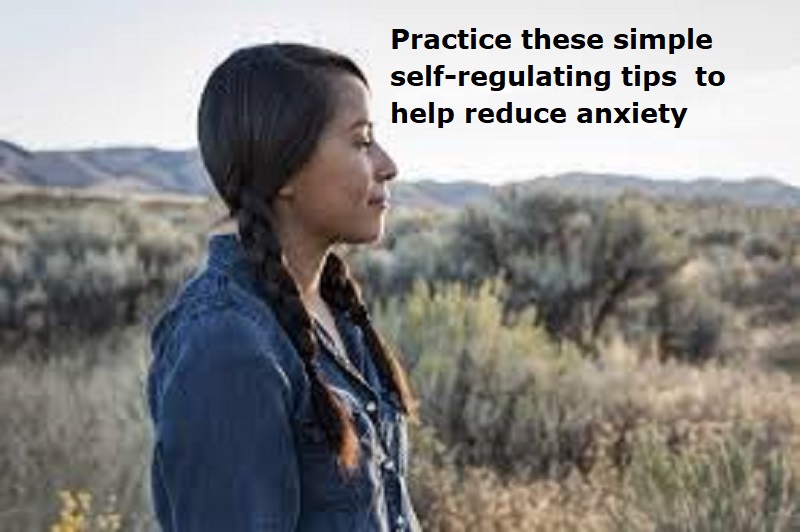
Anxiety is a mental health condition. It is characterised by persistent and excessive worry, fear, or unease. It is often accompanied by physical symptoms like restlessness, fatigue, difficulty concentrating, and muscle tension
Self-regulating strategies to help reduce anxiety:
1. Deep breathing:
Practicing deep breathing can help calm the nervous system and lower anxiety levels. Deep breathing reduces anxiety symptoms such as rapid heartbeat and shallow breathing. Breathe in slowly through your nose, hold for a few seconds, and exhale fully through your mouth. Repeat several times.
2. Progressive muscle relaxation:
This technique involves tensing and then releasing different muscle groups in your body, promoting relaxation and reducing muscle tension commonly associated with anxiety. Start by tensing your toes and gradually work your way up to your face.
3. Mindfulness meditation:
Mindfulness helps to focus your attention on the present moment, reducing anxiety linked to the past or future.
4. Physical exercise:
Engaging in regular physical activity, such as aerobic exercises or yoga, produces endorphins, also known as ‘feel-good’ hormones. These endorphins boost mood, improve sleep, and reduce anxiety.
5. Cognitive restructuring:
This technique involves identifying and challenging negative thoughts. By replacing these thoughts with more realistic and positive ones, cognitive restructuring can help alleviate anxiety and improve mental well-being.
Also Read; Know the difference between weight training and strength training
6. Journaling:
Writing down your thoughts and emotions can provide an outlet for self-expression and reflection. It helps to identify triggers that cause anxiety, understand recurring patterns, and develop effective coping strategies.
7. Establishing a routine:
Having a structured daily routine provides predictability, stability, and a sense of control.
8. Social support:
Connecting with supportive family, friends, or community groups can boost mental health. Seeking support helps to reduce feelings of isolation and provides an outlet for sharing concerns and worries.
9. Limiting stimulants:
Reducing or avoiding substances such as caffeine, nicotine, and alcohol can improve anxiety symptoms.
10. Setting boundaries:
Establishing and enforcing personal boundaries helps to cultivate self-respect and reduce anxiety caused by overextending oneself.

Post Your Comments